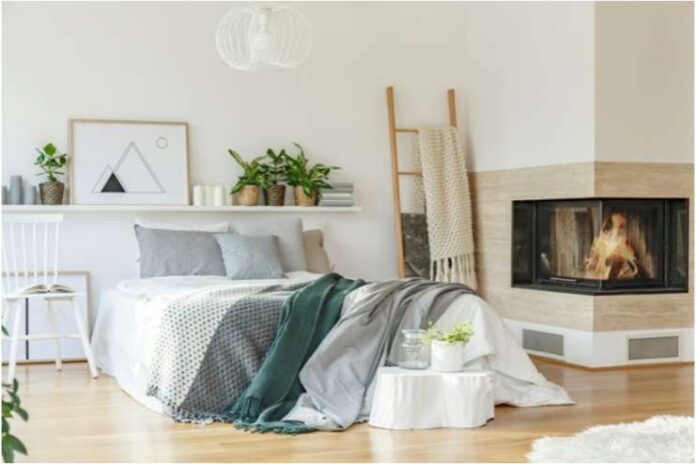Affiliate Disclaimer
Some links in this article are affiliate links. We may earn a small commission if you make a purchase through these links, at no extra cost to you. We only recommend products we find useful to our readersIn today’s hectic environment, finding calm in the bedroom is crucial for healthy sleep and general well-being. Indoor plants are a simple and efficient method of bringing a sense of calm to your environment. These green friends not only improve the visual appeal of your space, but some of them also have substantial psychological advantages.
Bedroom plants can encourage relaxation and lower stress and anxiety levels. Their relaxing properties make them ideal allies for people with insomnia, as they contribute to better sleep quality.
Adding insomnia-relieving plants to your bedroom creates a calm atmosphere that promotes relaxation and tranquility. The appropriate plants offer a comprehensive approach to air purification and natural fragrance.
Read More: 9 Essential Oils for Sleep That Drives Insomnia Away
What is Insomnia?
Insomnia is a common sleep disorder that makes it difficult to fall asleep or stay asleep. Some individuals may wake up too early and struggle to fall back asleep, often leading to feelings of exhaustion upon waking.
Insomnia can significantly affect one’s mood, energy levels, overall quality of life, work productivity, and health.
For some, insomnia is a minor inconvenience, while for others, it can cause serious disruptions in daily life. The causes of insomnia vary widely, and the amount of sleep needed differs from person to person. However, the average adult typically requires between 7 to 9 hours of sleep each night.
Many people experience short episodes of insomnia at some point in their lives, which may last for days or weeks. These brief bouts are often triggered by stress or a traumatic experience.
In contrast, chronic insomnia, or long-term insomnia, affects certain individuals for at least three months. While the primary issue may be insomnia itself, it can also stem from other medical conditions or be a side effect of medications.
Plants That Treat Insomnia & Boost Health
Keeping plants in the bedroom enhances its aesthetic appeal and supports improved mental and physical wellness. A walk in the park, which has a direct connection to nature, has been reported to help reduce stress levels associated with anxiety disorders. Why not bring a little touch of nature into your home?
Here’s a list of the best plants to add to your bedroom, that promote sleep and provide the ideal tranquility.
1. Lavender

Lavender is well-known for being a natural sleep aid. According to one study, smelling lavender before bed may help you sleep better. You might use dried lavender for potpourri, essential oil, or better yet – a lavender plant by your bed.
You might even go one step further and use more than one source of lavender smell if you feel that this scent suits you.
Read More: 12 Scientifically Proven Tips on How to Have Better Sleep at Night
2. Jasmine

Jasmine’s sweet scent energizes your space and promotes comfortable, restful sleep.
Research has indicated that breathing in the aroma of jasmine while attempting to fall asleep has resulted in more peaceful nights. According to one study, people who slept with the scent of jasmine reported feeling less nervous and having a more restful night’s sleep.
3. Aloe Vera
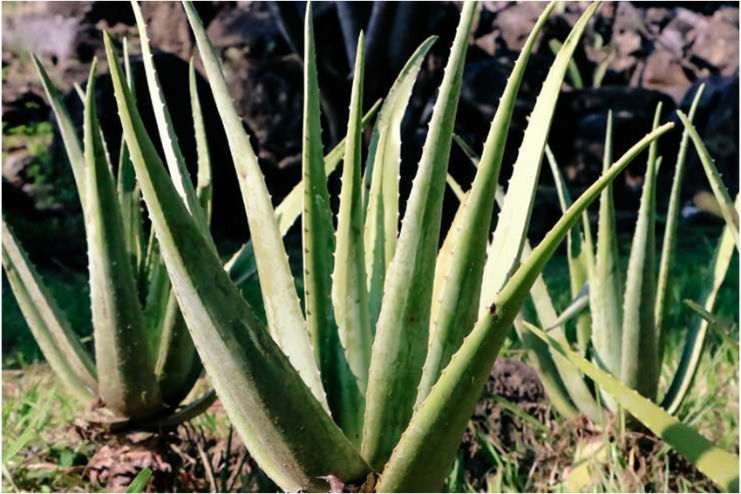
Aloe Vera is one of nature’s most restorative plants. Its juice helps improve digestion and boost immunity, while its gel can help heal minor cuts and sunburns. Aloe vera is a fantastic plant for enhancing sleep and has many health benefits for your skin. Like most house plants, it releases oxygen, absorbs carbon dioxide, and offers medical benefits.
This is an excellent plant to have around for both reasons. Because it purifies the air, it’s also a great addition to the bedroom to keep the air fresh while you sleep.
4. Gardenia
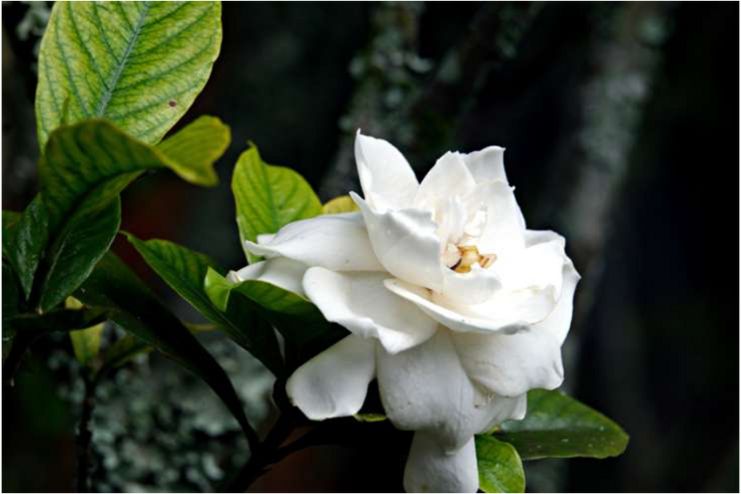
Gardenia flowers are renowned for their wonderful scent. They are a lovely interior plant with glossy green leaves and velvety, jasmine-like, fragrant white blooms. Their pleasant scent promotes a more profound, more peaceful slumber.
This low-maintenance plant, which likes indirect sunlight, is also perfect for beginners. Keeping gardenias in your room and allowing their scent to fill the air could improve your sleep quality.
Read More: 12 Breathing Techniques For Sleep To Drive Insomnia Away
5. Snake Plant
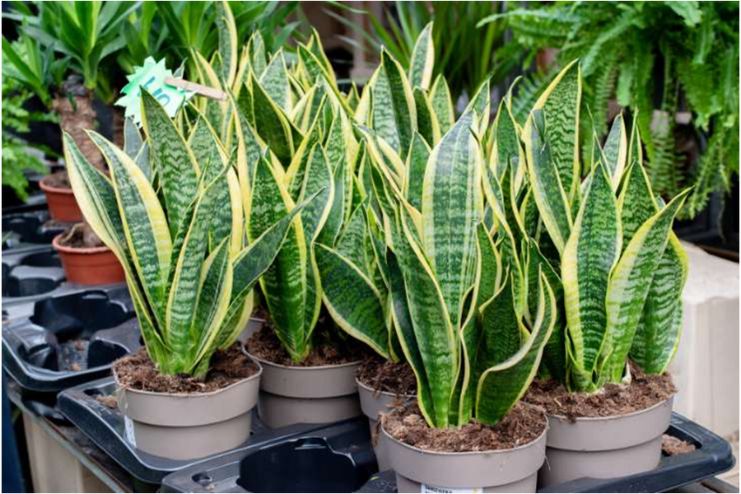
Do you want to keep light from entering your bedroom? Think about including a snake plant in your room. One of the easiest houseplants to maintain, it can withstand low light and water levels, and its tall foliage makes it an excellent floor plant for filling in bare spaces in the room.
Using a snake plant is the best way to filter the air of formaldehyde, trichloroethylene, and benzene—substances you don’t want to breathe in while you’re asleep.
6. Spider Plant
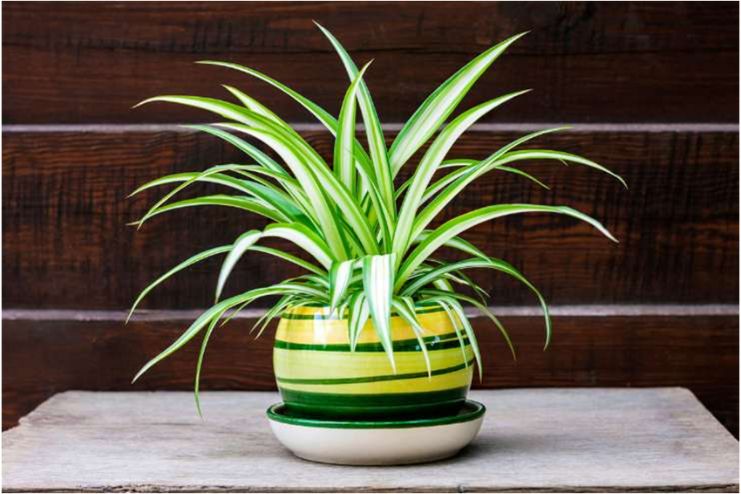
Don’t be deflected by the name; this one doesn’t bite. The spider plant is considered one of the best air purifiers. An excellent option for eliminating formaldehyde from the air, it absorbs carbon dioxide and increases oxygen like any other houseplant.
7. English Ivy
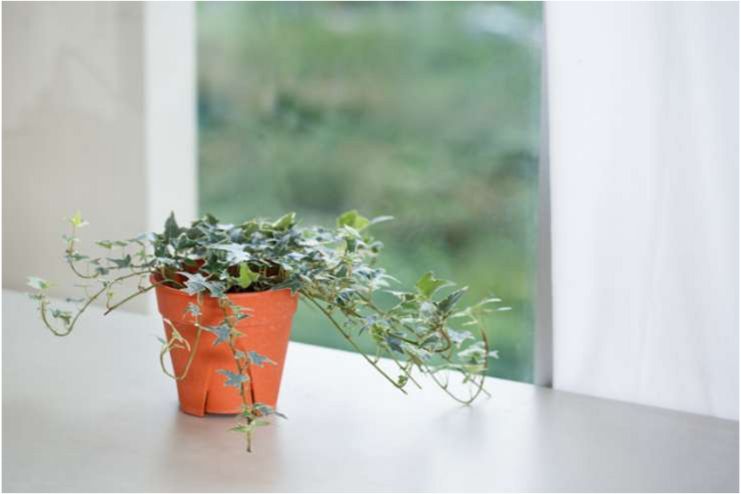
If you have trouble breathing at night, consider placing English ivy in your bedroom. Research shows this plant can help with asthma-related respiratory problems while sleeping. It’s also a popular choice for air filtration.
Read More: Simple Ways To Tackle Insomnia
8. The Bamboo Palm

This plant can remove formaldehyde, trichloroethylene, and benzene from the air. Place one in your bedroom’s corner for a pleasant accent piece to improve sleep quality.
9. Peace Lily
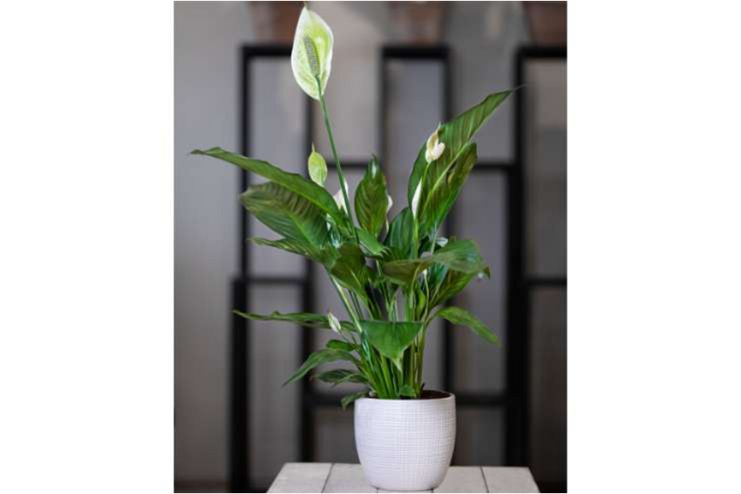
If you bring it into the bedroom, this plant will live up to its name and contribute to a more restful night’s sleep. The plant has lovely white flowers on tall stalks above its broad, dark green leaves. Peace lilies are excellent for tabletops or floor plants and blend well with most types of home décor. Avoid peace lilies if you have small children or a pet because they can be poisonous to humans and pets if consumed.
10. Passion Flower
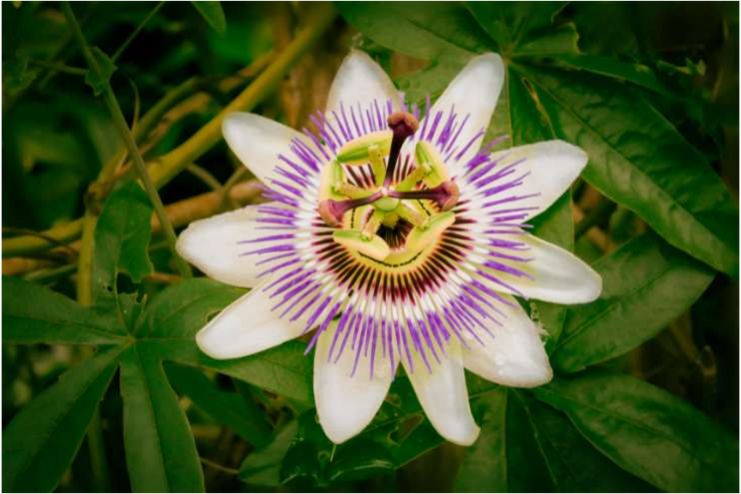
Research shows the use of passion flowers to treat anxiety and sleeplessness, although it mainly focuses on their therapeutic ingestion. Keeping these flowers in your room for aromatherapy purposes may have a comparable beneficial effect on your sleep cycle since they have been used for years to aid sleep.
Read More: Why You Keep Waking Up at 3 AM (And How to Fix It for Good)
11. Rubber Plant
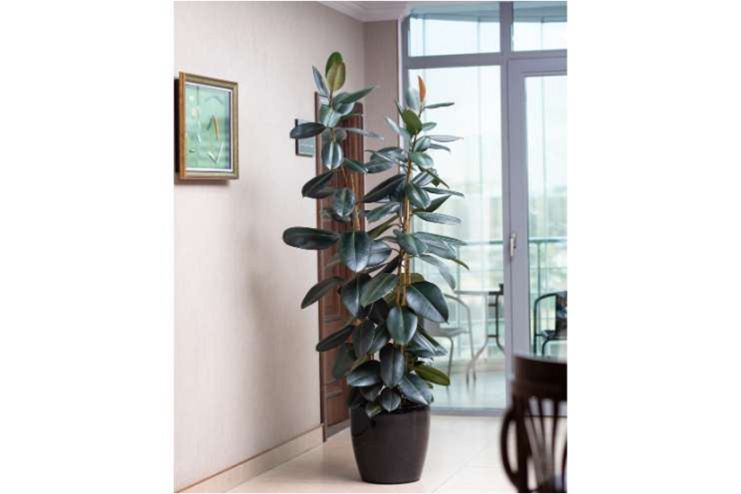
Like other indoor plants, ficus elastica, or rubber tree plants, will release oxygen as you sleep and absorb carbon dioxide. It is a fantastic sleep plant because studies have connected popular houseplants to overall health, including reducing stress and enhancing sleep.
12. Pothos
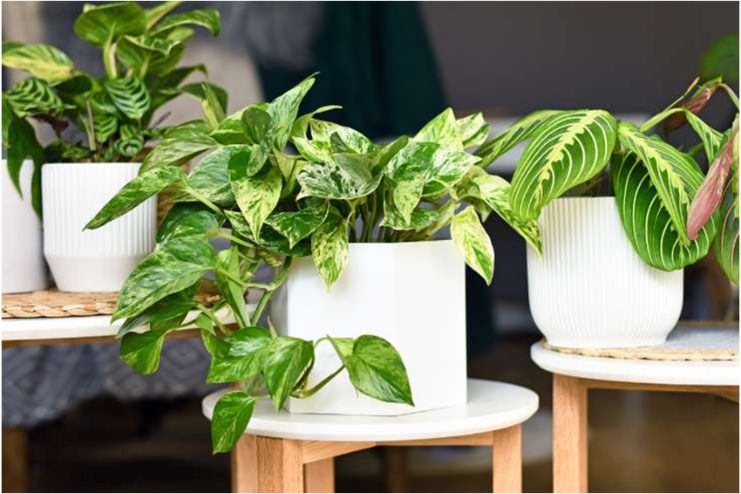
Get a pair for your bedroom the next time you visit your neighborhood garden center. The pothos is the pinnacle of exquisite, low-maintenance houseplants. Depending on the light, its leaves can be solid, medium green, or variegated with a cream stripe. This houseplant is a fantastic bedroom choice to help encourage sleep because it thrives in bright, indirect light.
Read More: Adaptogens for Stress: Natural Remedies to Calm Your Mind and Body
Is Having Plants in the Room Good or Bad?
Before determining whether plants are safe, we must understand photosynthesis and respiration, two crucial plant processes.
Plants use photosynthesis to release oxygen and absorb carbon dioxide during the day. But like people, they change gears at night and breathe, inhaling oxygen and exhaling carbon dioxide. Because of this, some individuals are concerned that keeping plants in the bedroom may cause the oxygen levels to drop at night.
It’s crucial to remember that plants only emit a small amount of carbon dioxide at night, which won’t significantly affect the oxygen levels in your room. Furthermore, certain plant species continue to release oxygen at night.
Conclusion
It only takes a few tranquil bedroom plants to turn your bedroom into a sleep-friendly oasis. These sleep-enhancing plants, which range from tranquil lavender to air-purifying snake plants, naturally lower stress, enhance air quality, and encourage relaxation.
Using plants to treat insomnia can significantly impact your general health and quality of sleep if you have restless nights.
Why not begin using nature’s straightforward yet effective sleep aid right now? Adding a fragrant jasmine plant or a soothing peace lily will help you sleep more peacefully and restfully. Taking the first step, you can create a plant-friendly sleeping space supporting your body and mind.
-
Jun 2018Written by Somapika D
-
Feb 2025Edited by Ankita
References
- https://my.clevelandclinic.org/health/diseases/12119-insomnia
- https://www.mayoclinic.org/diseases-conditions/insomnia/symptoms-causes/syc-20355167
- https://www.nhlbi.nih.gov/health/insomnia
- https://medlineplus.gov/insomnia.html
- https://www.hopkinsmedicine.org/health/conditions-and-diseases/insomnia
- https://pmc.ncbi.nlm.nih.gov/articles/PMC4505755/
- https://www.cnet.com/health/sleep/house-plants-to-sleep-better
- https://www.marthastewart.com/1527907/plants-help-you-sleep-better
- https://www.va.gov/WHOLEHEALTHLIBRARY/tools/botanical-medicines-healthy-sleep-rest.asp
- https://worldhealth.net/news/jasmine_found_to_encourage_restful_sleep/
- https://www.marthastewart.com/1527907/plants-help-you-sleep-better
- https://www.cnet.com/health/sleep/house-plants-to-sleep-better/
- https://forums.botanicalgarden.ubc.ca/threads/are-plants-harmful-or-helpful-in-the-bedroom.48507/
In this Article















